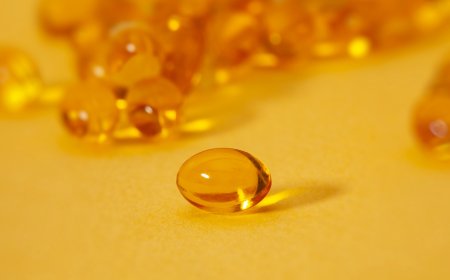Vitamin C: The Essential Nutrient for Health and Vitality
Unearth the power of vitamin C, from boosting immunity to promoting healthy skin. Discover the best vitamin C foods and supplements to combat vitamin C deficiency. Learn about the vital importance of this mighty vitamin for your health.

Vitamin C: The Magic Potion Your Body Needs Every Day!
What is Vitamin C?
Everyone knows vitamin C is vital for our health. But what does it do? Vitamin C, also known as ascorbic acid, helps our body in many ways. It helps heal wounds, fights off sickness, and makes our skin look great. You can find it in many tasty foods like oranges, strawberries, and peppers. And if you can't get enough from your diet, there are also vitamin C supplements you can take.
The Power of Vitamin C
Vitamin C is a strong helper for our bodies. It is an antioxidant, which means it fights harmful things in our body called free radicals. These free radicals can harm our cells and lead to sickness. Vitamin C supports our immune system, the part of our body that fights off sickness. It also helps our body make collagen, a protein that keeps our skin, hair and nails strong and healthy.
Spotting Vitamin C Deficiency
When your body doesn't get enough vitamin C from the foods you eat, you can develop a condition called vitamin C deficiency. Let's explore what this means, the signs to watch for, and how you can prevent it.
What is Vitamin C Deficiency?
Vitamin C deficiency happens when you're not getting enough vitamin C from your diet. Because your body can't make vitamin C, it relies on the foods you eat to supply this crucial nutrient. If your diet lacks vitamin C-rich foods, or if a health condition prevents your body from absorbing nutrients properly, you can become deficient.
Symptoms of Vitamin C Deficiency
Vitamin C deficiency can lead to a range of symptoms, which may start mild and become more severe over time. These can include:
- Fatigue: You might feel tired or weak, even if you've had plenty of rest.
- Mood changes: People with vitamin C deficiency might feel irritable or depressed.
- Weight loss: Lack of vitamin C can lead to a decreased appetite, which might result in weight loss.
- Joint and muscle aches: Without enough vitamin C, your body can't produce collagen effectively, which can lead to muscle and joint pain.
- Dry skin and hair: Vitamin C is important for healthy skin and hair. Deficiency can lead to dryness and splitting of hair, and rough, dry skin.
- Easy bruising and slow healing: Vitamin C plays a key role in wound healing. If you're deficient, you might notice that cuts and bruises take longer to heal.
In severe cases, prolonged vitamin C deficiency can lead to a disease called scurvy, which can cause severe anemia, skin hemorrhages, and even death if left untreated.
Preventing Vitamin C Deficiency
The best way to prevent vitamin C deficiency is to eat a balanced diet that includes plenty of fruits and vegetables, especially those high in vitamin C. If you're at risk for deficiency due to a medical condition or dietary restrictions, vitamin C supplements may be recommended by your doctor.
In the end, it's essential to recognize the importance of vitamin C in your diet and to ensure you're getting enough. If you suspect you may have a vitamin C deficiency, it's important to consult with a healthcare provider to discuss your symptoms and potential treatment strategies.
Vitamin C Foods
Vitamin C is abundant in a variety of fruits and vegetables. Incorporating these into your diet can help ensure you're getting plenty of this essential nutrient.
Fruits Rich in Vitamin C
- Citrus Fruits: When we think of vitamin C, citrus fruits often come to mind first. Oranges, grapefruits, lemons, and limes are all excellent sources. A medium orange, for example, provides about 70 milligrams of vitamin C.
- Berries: Strawberries are an outstanding source of vitamin C. One cup gives you your full daily needs. Other berries, like raspberries and blackberries, also contain vitamin C, but in smaller amounts.
- Kiwi: This small fruit packs a big vitamin C punch. In fact, one kiwi provides nearly as much vitamin C as an orange.
- Papaya: This tropical fruit is another superstar. A single small papaya has about 95 milligrams of vitamin C.
- Pineapple: Besides being tasty, pineapples offer a decent amount of vitamin C. One cup of pineapple chunks contains about 79 milligrams.
Vegetables High in Vitamin C
- Bell Peppers: Red bell peppers are one of the richest sources of vitamin C. One medium pepper delivers a whopping 152 milligrams.
- Green Leafy Vegetables: Greens like spinach and kale also contain vitamin C. One cup of raw kale, for example, has about 80 milligrams.
- Broccoli: This nutritious vegetable is a great source too. One cup of cooked broccoli offers around 100 milligrams.
- Brussels Sprouts: These mini cabbages are packed with nutrients, including vitamin C. Half a cup of cooked Brussels sprouts has about 48 milligrams.
- Tomatoes: While not as high in vitamin C as some other foods, tomatoes still contribute to your daily intake. One medium tomato has about 17 milligrams.
Incorporating a mix of these fruits and vegetables into your meals and snacks can help ensure you're getting a steady supply of vitamin C. Remember, while it's essential to get enough of this vitamin, more isn't always better. Aim for a balanced diet that meets your vitamin C needs without going overboard.
Vitamin C: A Vital Nutrient for Skin Health
Vitamin C, or ascorbic acid, isn't just good for your immune system. It's a powerful player in maintaining and improving skin health, too. Let's delve into the benefits of vitamin C for your skin.
- Brightens the Complexion
Vitamin C is well known for its brightening properties. It helps to fade pigmentation and smooth the skin's surface to reduce dullness. This gives skin a youthful glow and makes it look more vibrant.
- Reduces Signs of Aging
Vitamin C is crucial for collagen production. Collagen is a protein that gives your skin its structure, firmness, and elasticity. As we age, our bodies produce less collagen, leading to wrinkles and sagging skin. By boosting collagen production, vitamin C helps keep the skin looking firm and youthful.
- Protects Against Sun Damage
Vitamin C is an antioxidant, meaning it protects skin cells from damaging free radicals caused by UV exposure. It does not work as a sunscreen, but it does protect against and may repair UV damage like discoloration and fine lines.
- Reduces Under-Eye Circles
These properties of vitamin C also help to smooth out fine lines by stimulating collagen production, potentially reducing the appearance of under-eye circles.
- Speeds Up Healing
As vitamin C promotes collagen production, it helps to heal the skin. This means it can speed up the body's natural repair system and reduce the recovery time for wounds and blemishes.
- How to Use Vitamin C for Skin
While eating vitamin C-rich foods can help maintain the health of your skin, applying it topically is the most effective way to enjoy these benefits. This is often in the form of a serum or moisturizer.
Topical vitamin C products should be stored in a cool, dark place to protect them from light and air exposure. It's also a good idea to do a patch test first to ensure you don't have an adverse reaction.
Remember, while vitamin C has many benefits for the skin, it's not a cure-all and should be used as part of a comprehensive skincare routine. Always consult with a skincare professional for personalized advice.
In conclusion, vitamin C is a potent ally for your skin, offering a range of benefits from brightening your complexion to reducing the signs of aging. It's a worthy addition to your skincare routine!
Vitamin C Supplements
Vitamin C supplements are a popular way to ensure you're getting enough of this vital nutrient, especially when it's hard to get it from food alone. Let's dive deeper into understanding these supplements.
- What Are Vitamin C Supplements?
Vitamin C supplements are products designed to deliver a high dose of vitamin C. They come in various forms, including tablets, capsules, chewable, powders, and even liquid drops. Some are pure vitamin C, while others might mix it with other vitamins and minerals.
- Why Use Vitamin C Supplements?
While the best source of vitamins is always a well-balanced diet, there are situations where supplements can be helpful.
If you have trouble eating a varied diet, or if you have a medical condition that impacts absorption of nutrients, supplements can help you meet your daily vitamin C needs. They're also useful during cold and flu season, as higher doses of vitamin C can boost the immune system and may help reduce the duration of cold symptoms.
- Choosing The Right Supplement
When choosing a vitamin C supplement, it's important to consider the dose. The recommended daily amount for adults is 65 to 90 milligrams a day, and the upper limit is 2,000 milligrams a day.
Remember, more isn't always better. Taking too much vitamin C can cause side effects like stomach upset and diarrhea. It's always best to speak with your doctor or a dietitian before starting a new supplement.
- How to Take Vitamin C Supplements
Generally, you can take vitamin C supplements with or without food. However, if you experience stomach upset, try taking them with a meal. It's best to spread the dose throughout the day to maximize absorption.
- The Bottom Line
Vitamin C supplements can be a convenient way to ensure you're getting enough of this crucial nutrient. However, they're not a substitute for a healthy diet. Aim to get most of your nutrients from wholesome foods like fruits and vegetables, and use supplements as a backup, not a replacement. Always consult a healthcare professional before adding a new supplement to your routine.
Remember, your health is in your hands! With a balanced diet and the right supplements, you can make sure your body has all the vitamin C it needs to stay strong and healthy.
Conclusion
Vitamin C is a powerful nutrient that helps keep our bodies healthy. It's important to get enough, whether from vitamin C foods or supplements. So, fill your plate with vitamin C-rich foods, and embrace the health benefits of this mighty vitamin.
Disclaimer: The image(s) featured in this article are for illustrative purposes only and may not directly depict the specific concepts, situations, or individuals discussed in the content. Their purpose is to enhance the reader's understanding and visual experience. Please do not interpret the images as literal representations of the topics addressed.
What's Your Reaction?











































































































